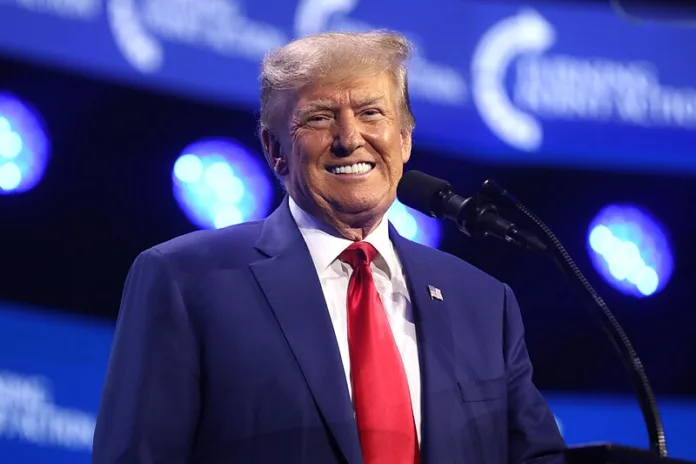Mexico, Canada, and China expressed concerns over President-elect Trump’s tariff plans, which could exacerbate inflation, disrupt markets, and strain job markets across borders
The trade world is bracing for a potential storm as U.S. President-elect Donald Trump’s vow to impose hefty tariffs on goods from Mexico, Canada, and China is met with growing alarm. Leaders from these countries, along with industry groups, have expressed serious concerns that the tariffs, if enacted, would significantly harm the economies of all parties involved, spiking inflation, triggering market instability, and placing thousands of jobs at risk.
Trump’s pledge, which was made public on Monday, includes a controversial plan to impose a 25% tariff on Canadian and Mexican imports starting from his first day in office. The move has sent shockwaves through currency, bond, and equity markets, with the peso and the Canadian dollar both taking a hit. Additionally, shares of major U.S. and European automakers dropped following the announcement, further underlining the potential economic ripple effects.
Of particular concern to industry leaders is the failure to exempt crude oil from the tariffs, a blow to the energy sector that had hoped for such an exception. Sources familiar with the plan confirmed that oil, despite its importance to both the U.S. and Canadian economies, would be subject to the same tariff penalties, a decision that industry executives fear will drive up costs and disrupt supply chains.
Embed from Getty ImagesMexico and Canada, two of the U.S.’s closest trade partners, are deeply integrated into the American economy, particularly in sectors like automotive production and energy. For decades, trade agreements between the North American nations have fostered close economic ties, and the imposition of such tariffs could destabilise this relationship. Mexican President Claudia Sheinbaum has warned of the potential for a full-blown trade war, where each tariff would prompt retaliatory measures, putting both businesses and consumers at risk. She announced plans to send a letter to Trump and request a phone call to discuss the escalating issue.
“Tariffs will lead to further tariffs,” Sheinbaum said in a recent press briefing. “We could see an escalating cycle that jeopardises not only our mutual businesses but also the global market.”
The tariff plan also includes an additional 10% levy on goods from China, further intensifying the trade tensions between the two nations. However, Trump has conditioned these tariffs on China, Mexico, and Canada addressing issues related to the flow of illicit drugs and migrant border crossings. The strategy is seen as a push by Trump to force these nations into a tighter grip on security measures, although critics argue that it is more likely to escalate economic tensions than resolve the underlying issues.
Canada’s central bank has also weighed in on the potential fallout, with officials stating that the proposed tariffs would have a “clear impact” on both the Canadian and U.S. economies. Analysts warn that Canadian exports would be hit hard by the 25% levy, particularly in industries such as automotive and energy, which have long been pillars of trade between the two nations. The Bank of Canada’s warning echoes the broader concern that a tariff-heavy policy would lead to higher consumer prices and hinder economic growth on both sides of the border.
In the U.S., industry leaders are expressing fears that the tariffs could push American companies into a more challenging position, as rising costs for imported goods may be passed down to consumers. The automotive sector, which relies heavily on parts and materials from Mexico and Canada, could see production costs soar, potentially leading to price increases for U.S. consumers. With several multinational corporations sourcing materials and labour from these countries, the impact of tariffs is expected to ripple across a wide range of industries.
Despite the vocal opposition from its trading partners, the Trump administration remains steadfast in its stance. The president-elect has framed the tariffs as a necessary step to protect American jobs and industries, but critics argue that they could end up doing more harm than good. “The tariffs will hurt everyone involved,” said one anonymous industry executive. “The U.S. is not isolated, and the interconnectedness of the global economy means that tariffs are just a Band-Aid solution to a much deeper issue.”
In light of these developments, many are calling for urgent negotiations between the U.S. and its largest trading partners. Trump’s upcoming inauguration has only heightened the urgency, with global markets now on edge about the potential consequences of these trade policies. As the world waits for the final word on these tariffs, the possibility of economic turmoil looms larger, leaving industry leaders and government officials alike hoping for a resolution before the damage becomes irreversible.
